Playbook Groups
Introduction
Playbook Groups will retain a clear sense by giving an option to combine multiple and/or clusters of playbook steps into a single group and can be represented as a single entity in the playbook.
Creating Groups will let you focus on the areas of current interest and see their relationship to the overall playbook.
Currently, the Playbook Groups feature is supported only in Advanced Mode.
To further understand and manage the Playbook Groups, see how to
- Create a Group
- Expand a Group
- Delete a Group
- Deconstruct a Group
- Group Characteristics
- Group Limitations
The following example contains case management-related steps that are grouped together. The grouped entity is called createCase.
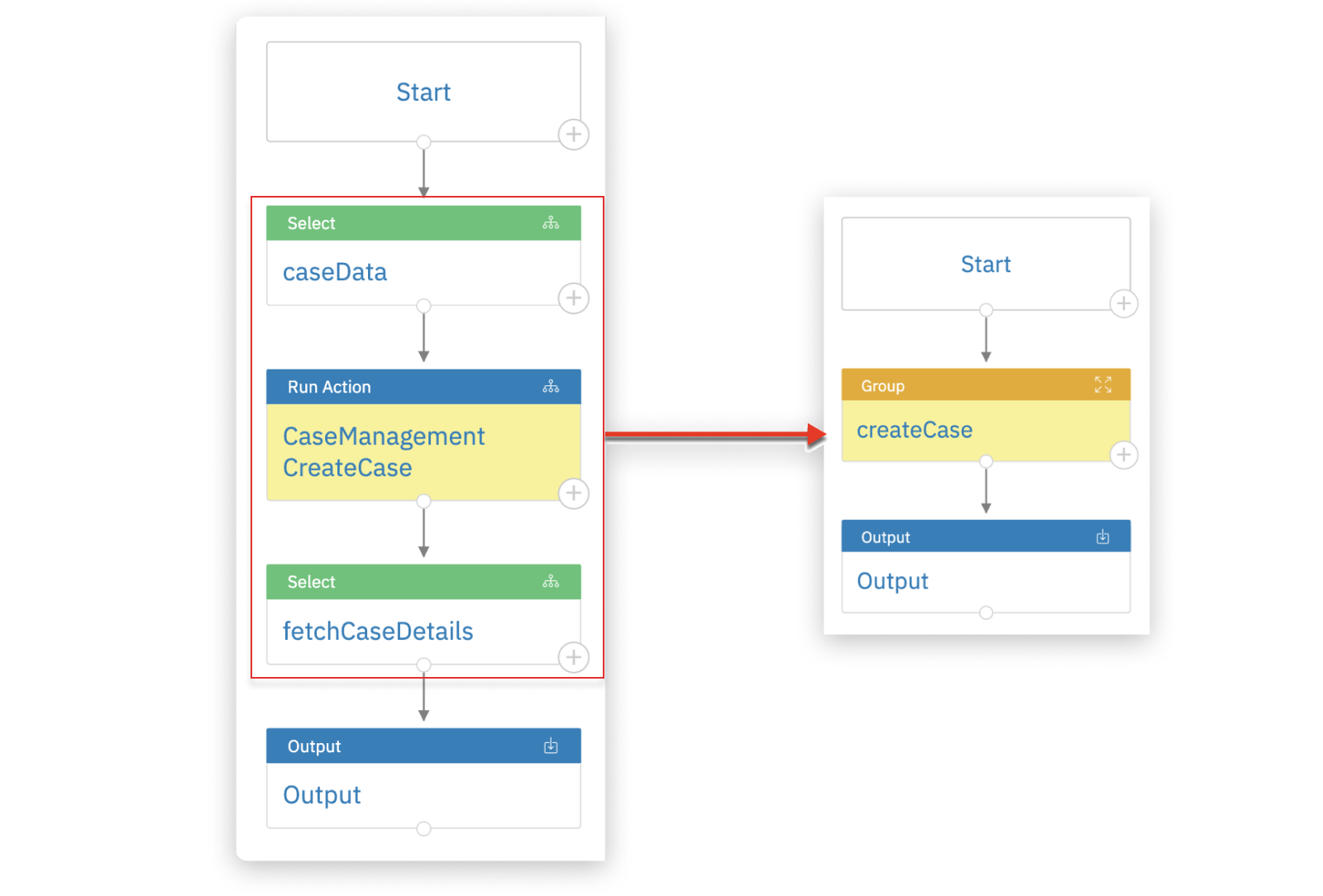
Create a Group
Prerequisites

- On the icon bar
- Click the Group icon.
- Drag the cursor to select a series of multiple steps for grouping.
While Grouping all the selected steps will be highlighted with an orange outline.
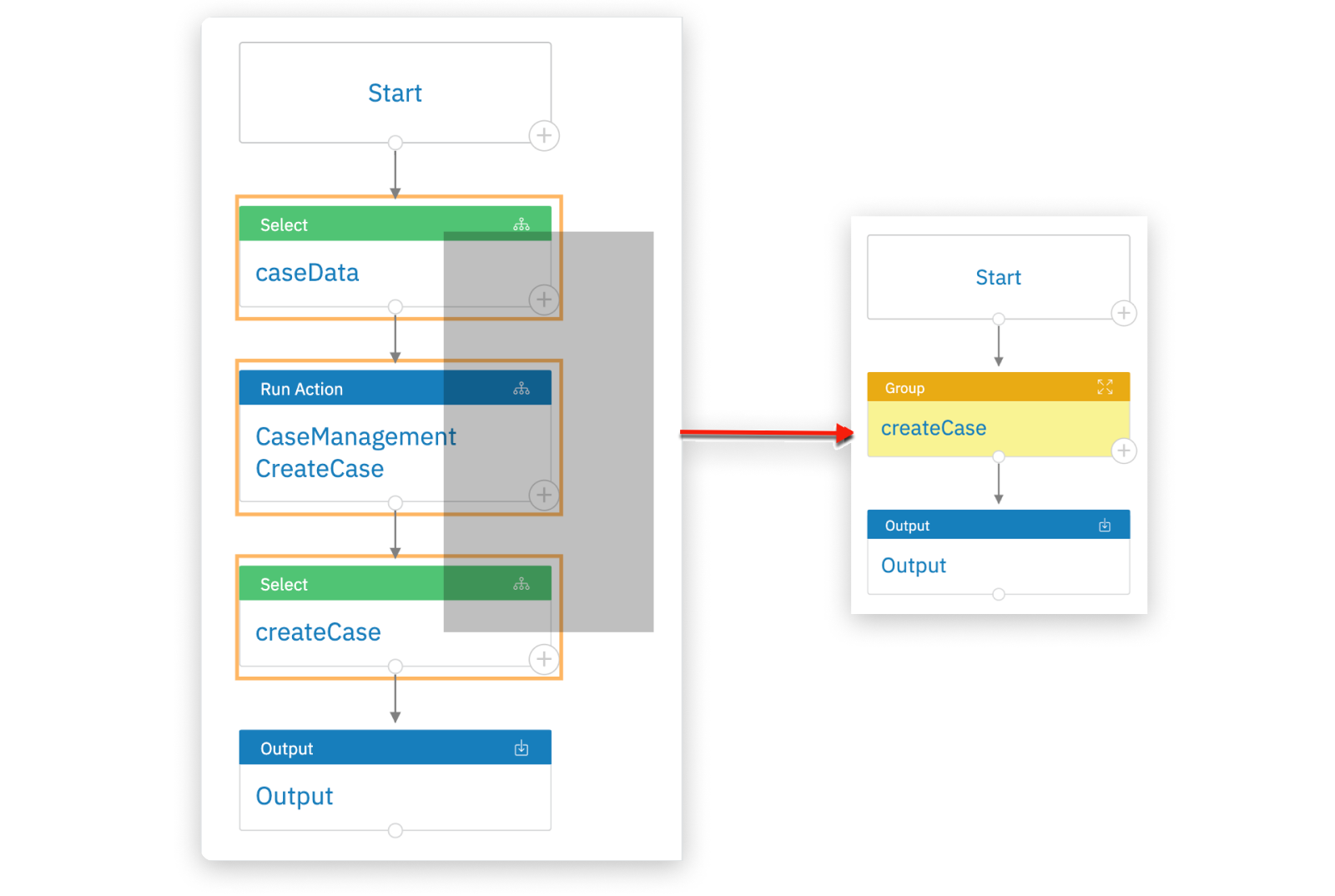
Playbook Group will be created successfully only if the selected series of steps qualify as a Group.
Expand a Group
To expand a group and display all the steps that it contains, click the Expand icon in the header.

The screen is displayed again to show the steps in the group. The step or steps that are inputs to the group are shown with a blue header.
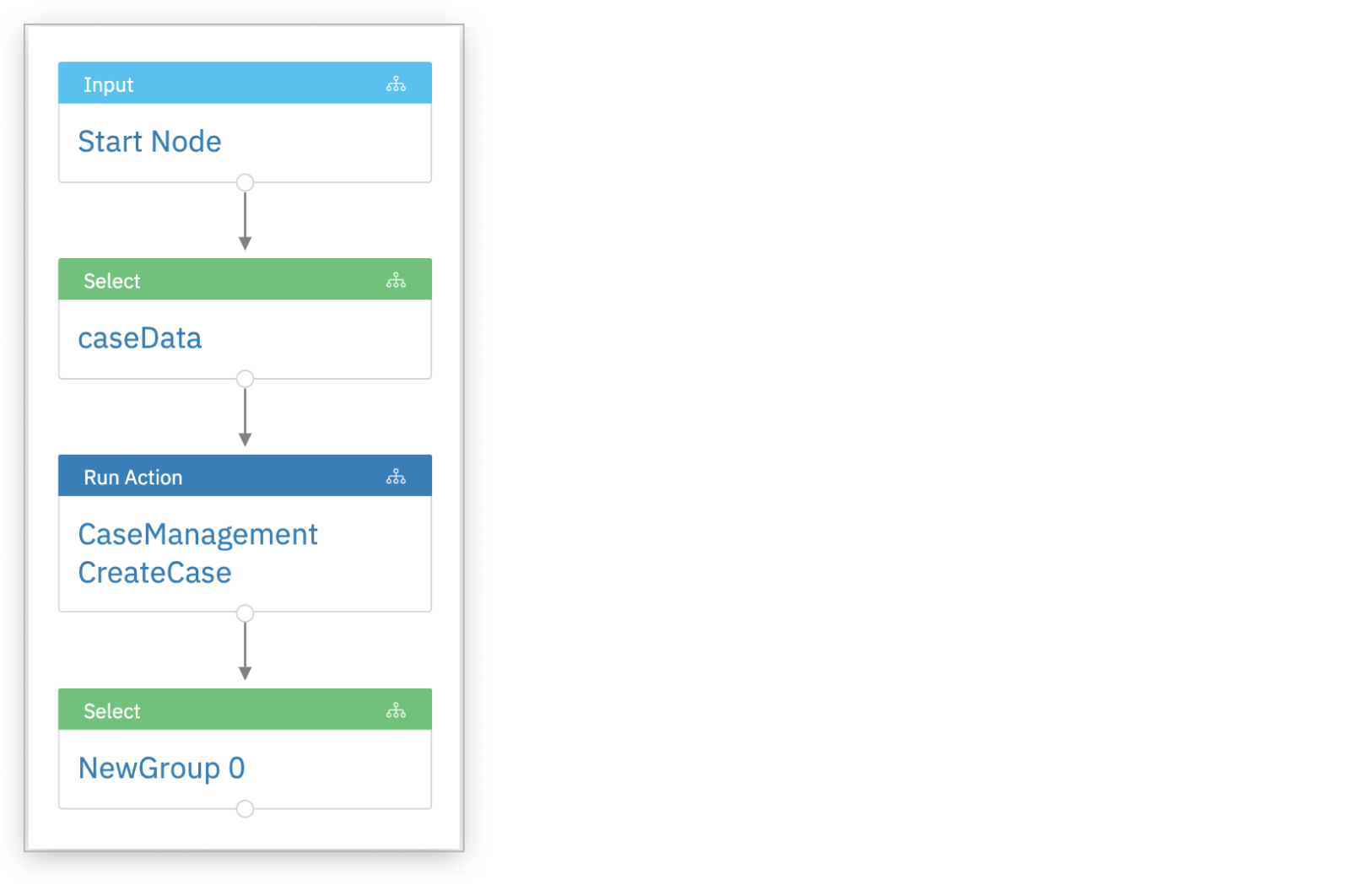
You cannot edit any steps in the expanded view, but you can click individual steps in the group to see how data moves through your playbook.
To display the full playbook again with the group, click the Back to Playbook link at the top left.

Delete a Group
Deleting a group deletes all the steps in the group. You can only delete the Playbook Groups that does not have any children (steps that follow it in the playbook).
There is no confirmation step for deleting a group, and no undo option. Do not delete a group unless you are sure that you no longer need it.
To delete a group, click the + icon in the lower right corner of the group to open the menu, and select Delete.
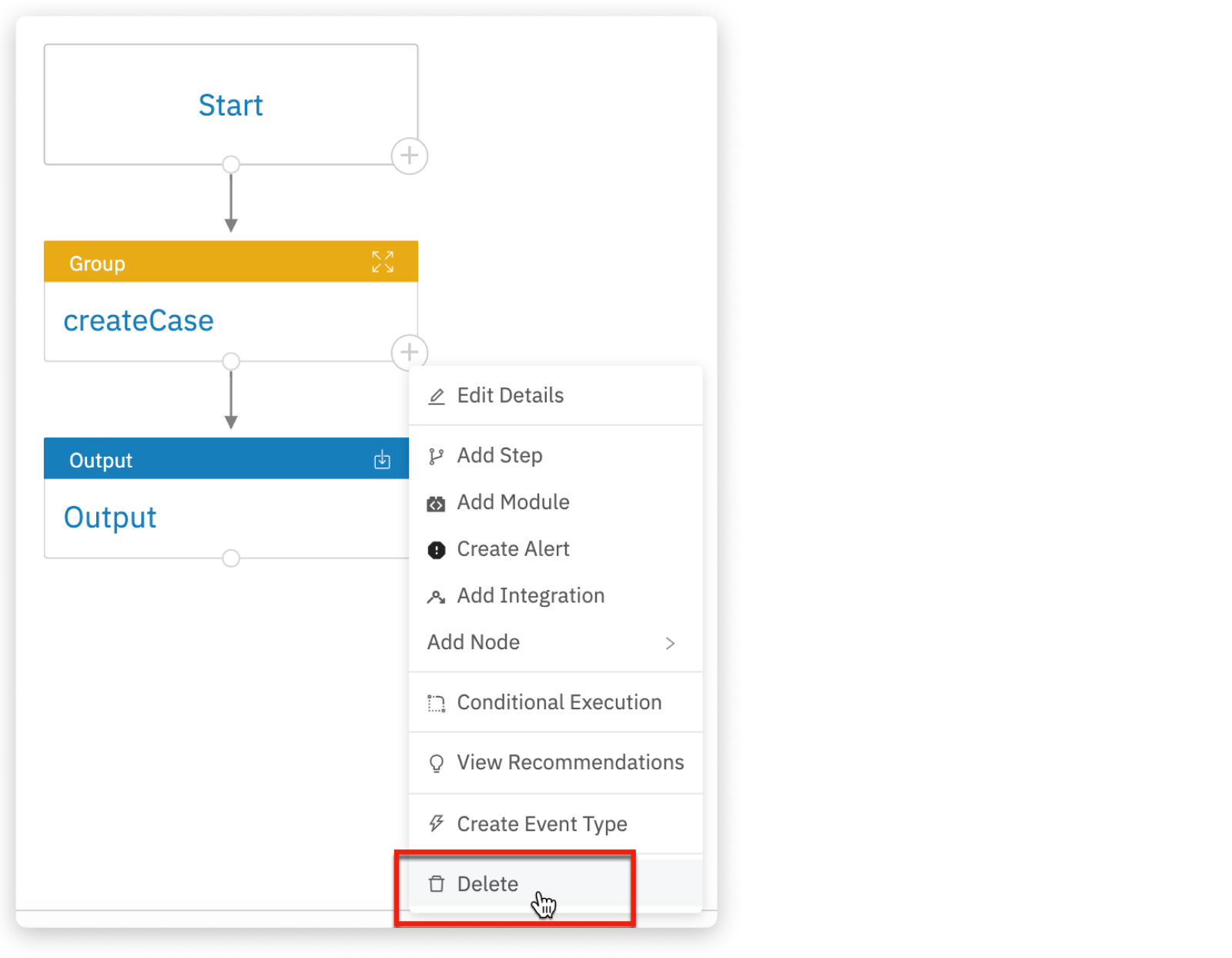
Deconstruct a Group
Deconstructing a group removes the group wrapper and leaves all the steps in place. Use the deconstruct action in the following cases:
- If you no longer want to combine the steps in a group.
- If you want to change the steps in the group. In this case, you must deconstruct the group and then create a new one.
To deconstruct a group in Advanced Mode, click the group node to display the settings, and then select Actions > Deconstruct.
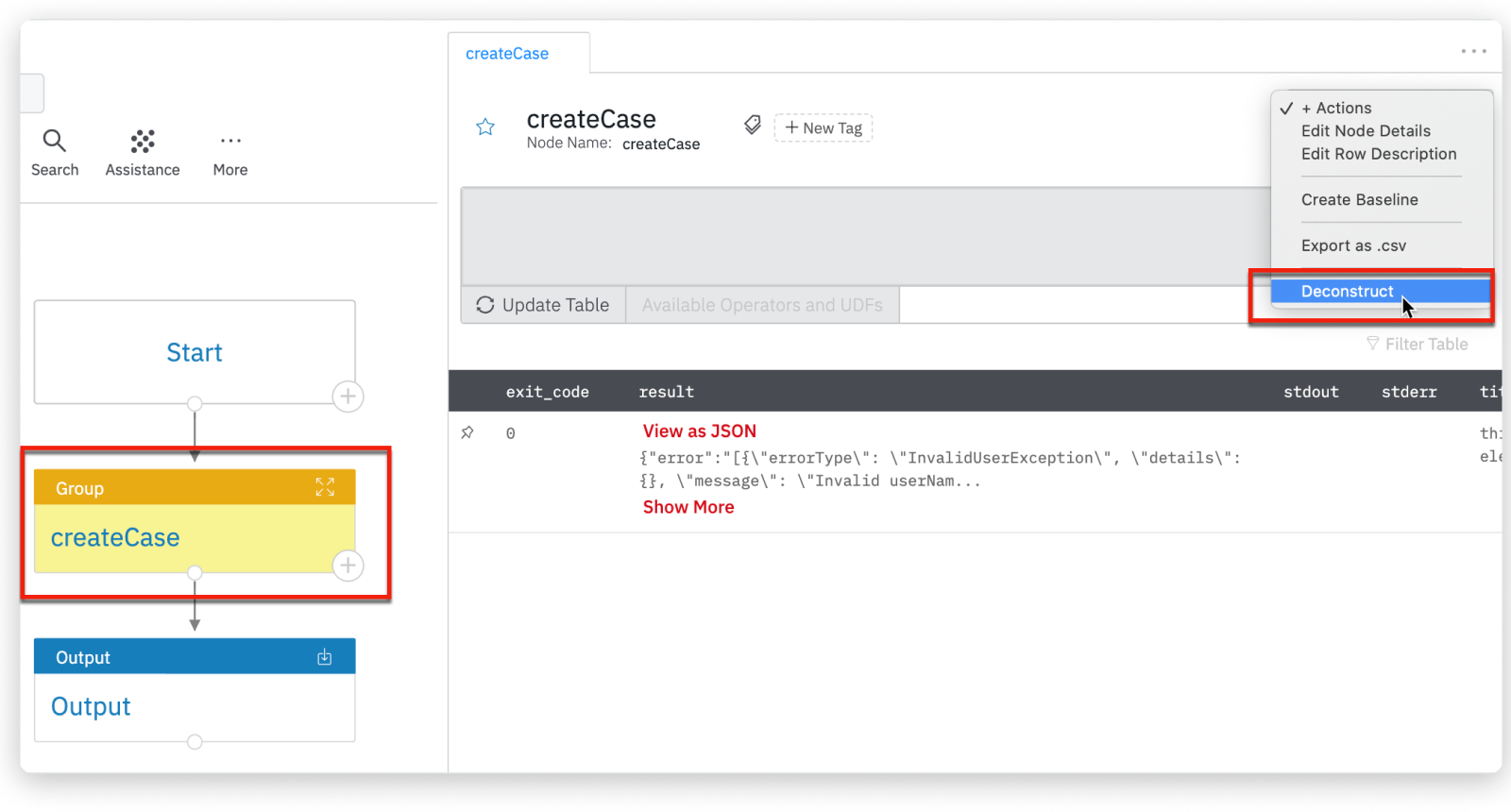
The playbook is redisplayed without the group wrapper. To straighten up the layout after deconstructing, click Re-layout in the top icon bar.
Group Characteristics
All steps within a group must be connected (so that the module itself is a playbook) and have a single step at the end. Examples:
- These steps cannot form a group, because they are not directly connected as a playbook.
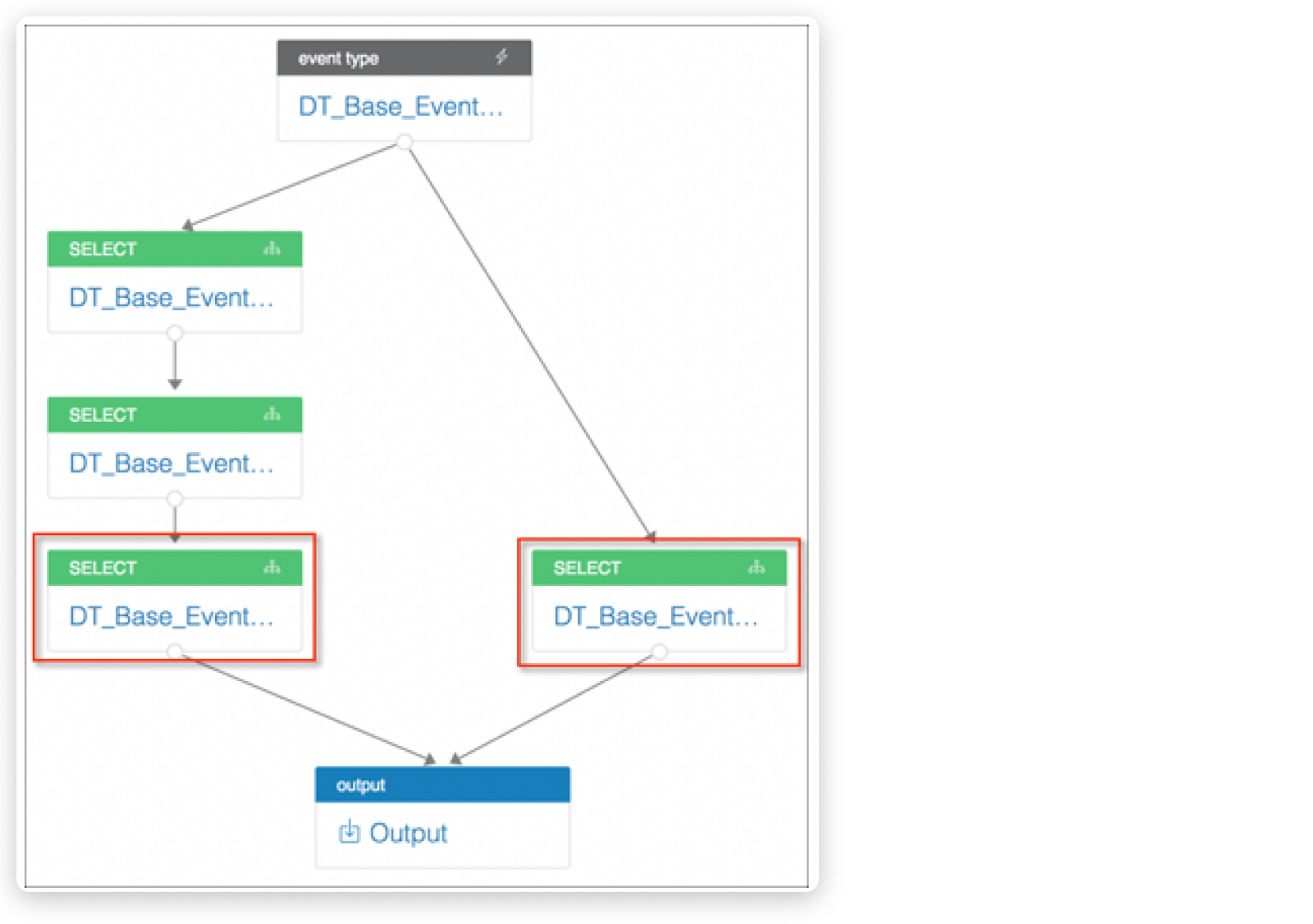
- These steps cannot form a group. They are connected as a playbook but don't have a single output at the end of the group.
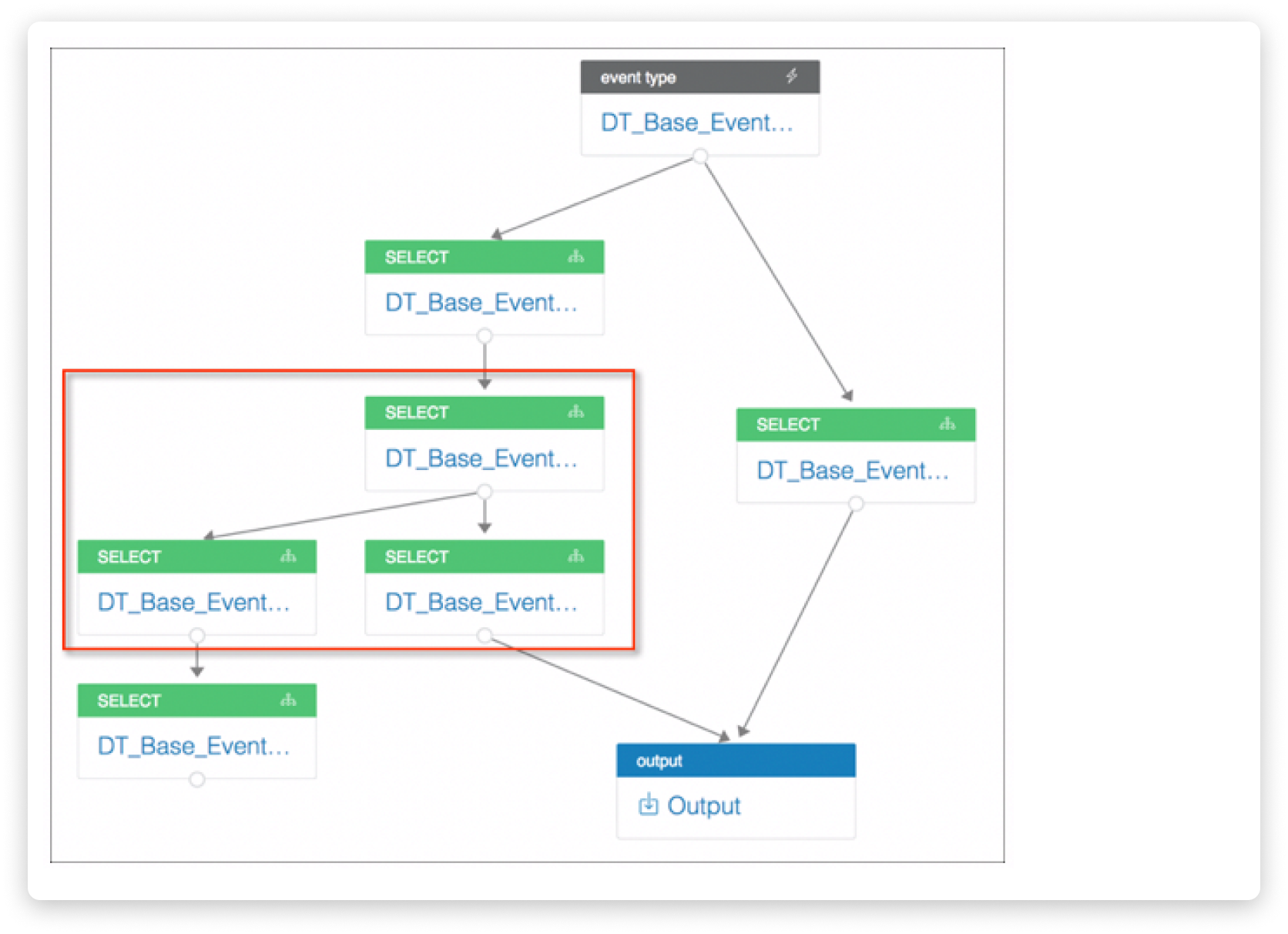
- These steps can form a group. They are connected as a playbook, and there is just one step at the end of the group.
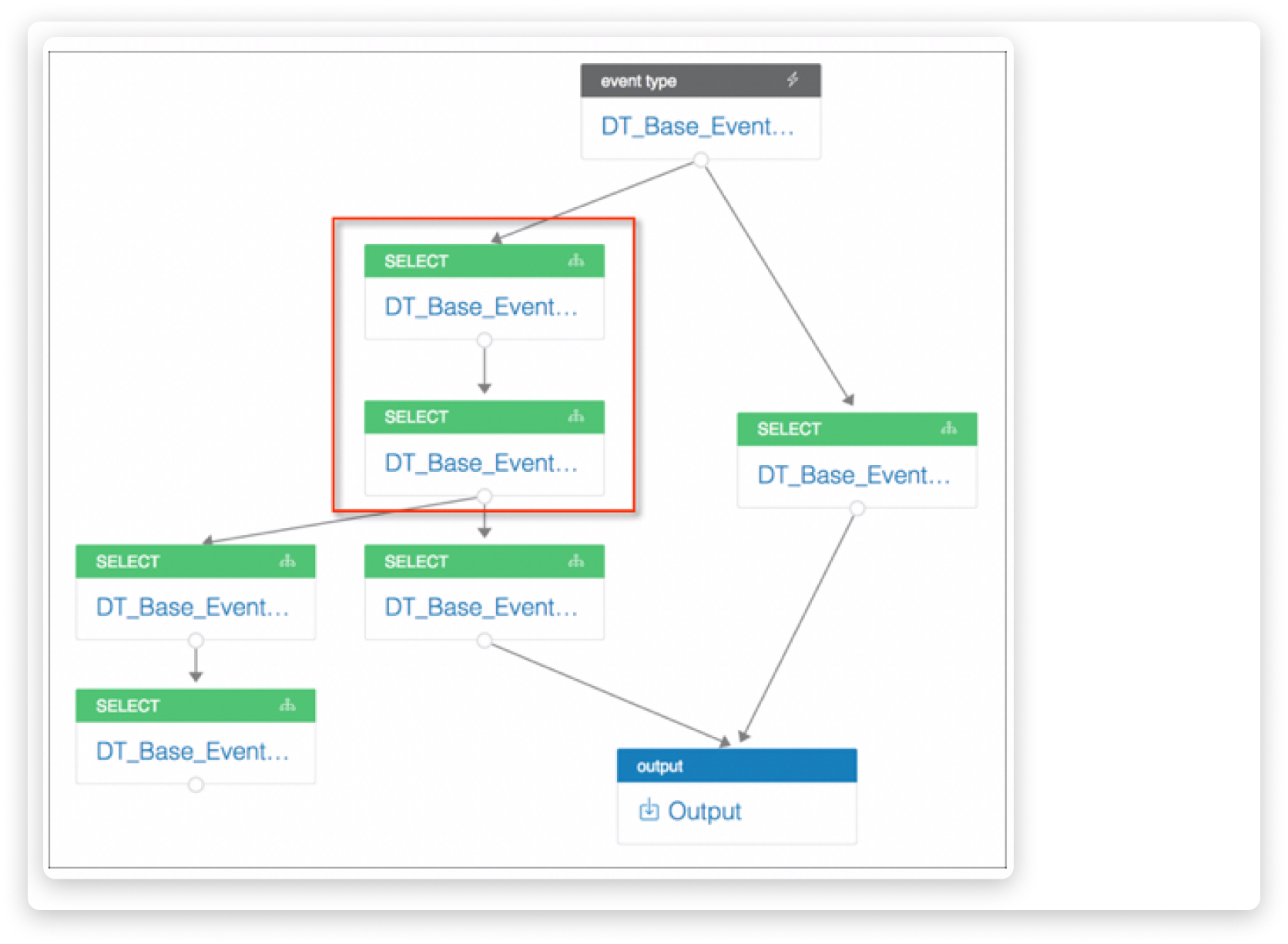
Group Limitations
Keep these limitations in mind when working with groups.
- Don't use the run task option for task steps that are in a group. Doing so can cause unpredictable results for your playbook. If you want to run a task that is in a group, deconstruct the group, run the task, and then recreate the group.
- In the expanded view, you can click the input step (shown in blue in the expanded view) to see what data is flowing into the group. However, if the input to a group (Mod2 in the following figure) is another group (Mod1 in the following figure), the results won't load successfully. To avoid this problem and still be able to see what data is flowing into the second group, you can add a computation step (Passthrough in the following figure) between the two group that simply passes the data through.
Use this query for the Passthrough step: select * from Mod1
Then when you expand Mod2, you can click the input step (Passthrough) and see the results that are flowing into Mod2.
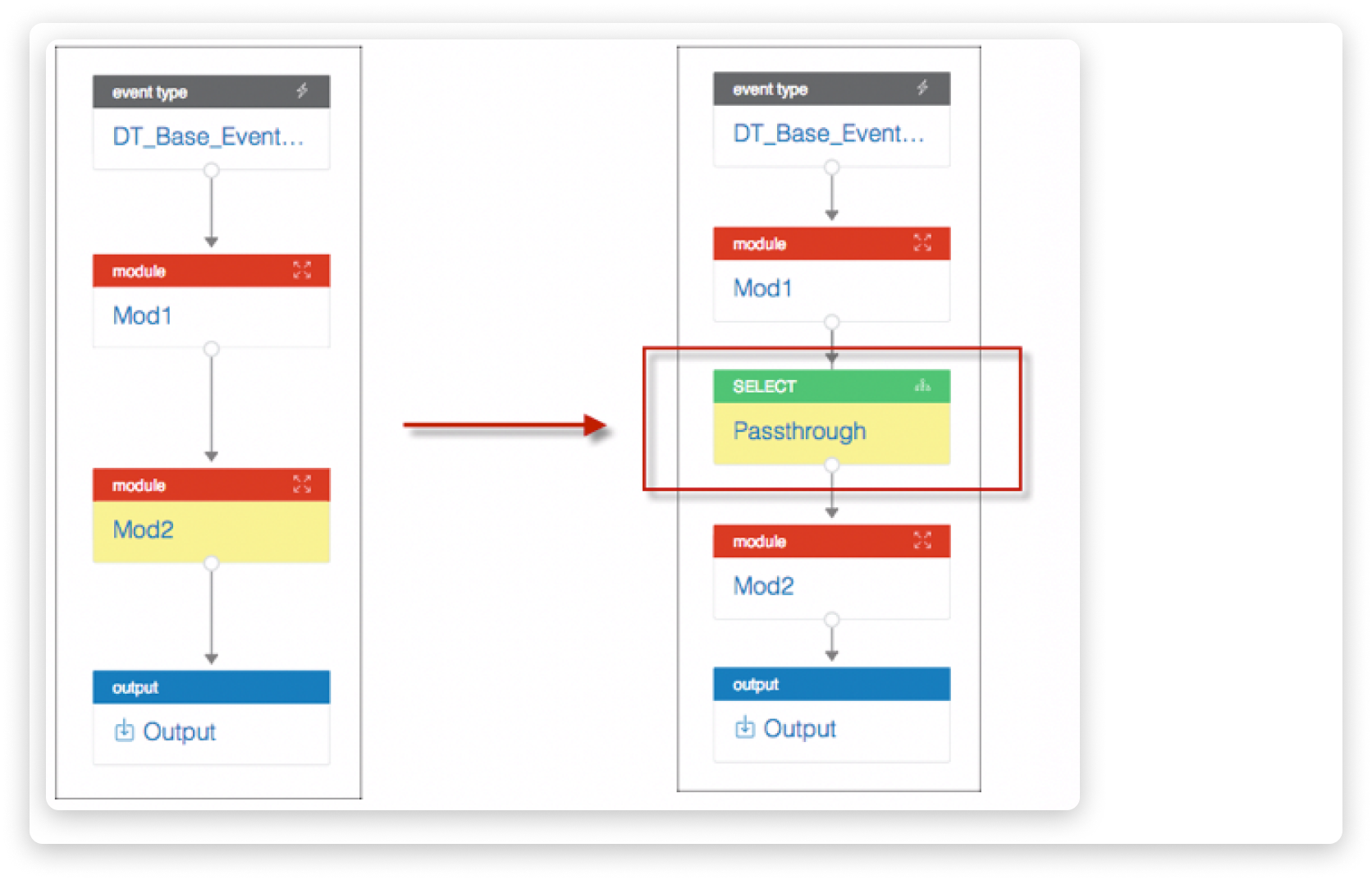
Updated over 2 years ago